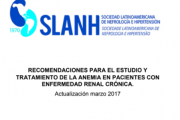Heat stress, dehydration, and kidney function in sugar cane cutters in El Salvador: A cross-shift study of workers at risk of Mesoamerican nephropathy.
Environmental Research 142 (2015) 746–755
Ramón García-Trabanino, Emmanuel Jarquín, Juan José Vindell
Lic. Juan José Vindell G.
Lic. en Estadística Egresado de Maestria en Epidemiología CIES-UNAN
Esta dirección de correo electrónico está protegida contra spambots. Necesita activar JavaScript para visualizarla.
An epidemic of progressive kidney failure afflicts sugar cane workers in Central America. Repeated high-intensity work in hot environments is a possible cause.
Objectives: To assess heat stress, dehydration, biomarkers of renal function and their possible associations. A secondary aim was to evaluate the prevalence of pre-shift renal damage and possible causal factors.
Methods: Sugar cane cutters (N 189, aged 18–49 years,168 of them male) from three regions in El Salvador were examined before and after shift. Cross-shift changes in markers of dehydration and renal function were examined and associations with temperature, worktime, region, and fluid intakewere assessed. Pre-shiftglomerular filtration rate was estimated (eGFR) from serum creatinine.
Results: The mean work-time was4(1.4–11) hours. Mean work day temperature was 34–36 °C before noon, and 39–42 °C at noon. The mean liquid intake during work was 0.8L per hour. There were statistically significant changes across shift. The mean urine specific gravity, urine osmolality and creatinine increased, and urinary pH decreased. Serum creatinine, uric acid and urea nitrogen increased, while chloride and potassium decreased. Pre-shift serum uric acid levels were remarkably high and pre-shift eGFR was reduced (less 60 mL/min) in 23 male workers (14%).
Conclusions: The high prevalence of reduced eGFR, and the cross-shift changes are consistent with recurrent dehydrati
on from strenuous work in a hot and humid environment as an important causal factor.
The pathophysiology may include decreased renal blood flow, high demands on tubular reabsorption,and increased levels of uric acid.




